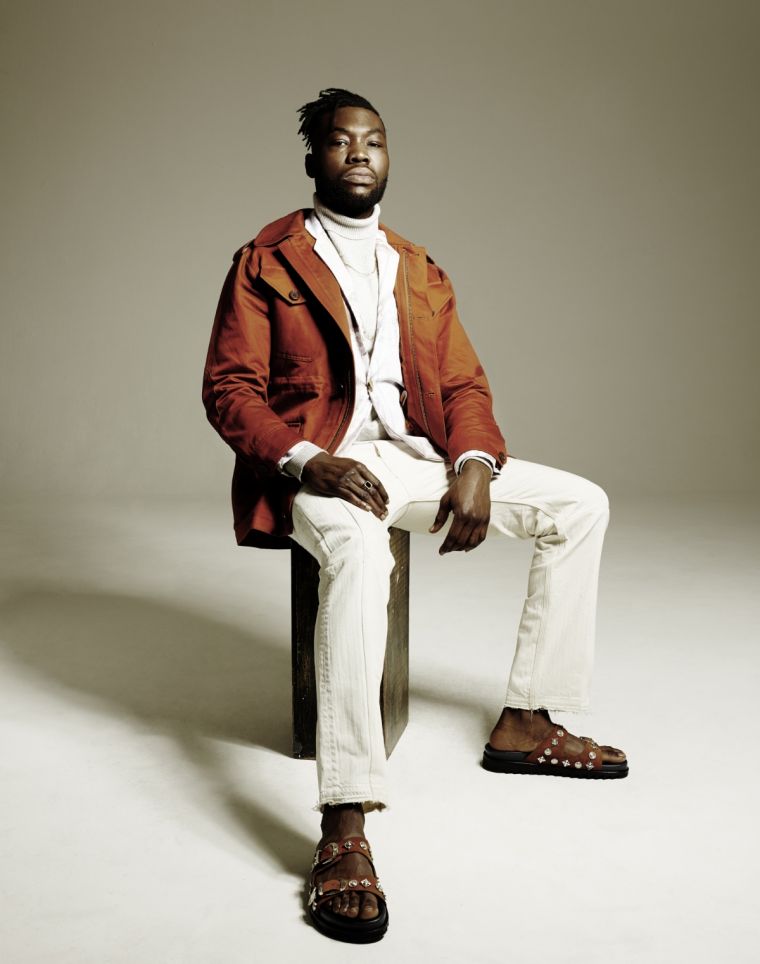Afrikan Boy: The innovative music star talks faith, family and prayer

Growing up with Nigerian parents in London, music and faith surrounded Olushola Ajose. He shares the experience with thousands of other kids in the diaspora. But his experience has propelled him onto stages around the world, making his own innovative brand of hip hop as Afrikan Boy.
As he takes to the stage as part of the Meltdown Festival on London's South Bank this weekend, he speaks to Christian Today about his life and career so far.
'I learned how to be Nigerian in Britain,' he tells me. 'Having a British heritage side in my music – that was always the backdrop against which I would drop my cultural stuff over – that's what allows it to stick out. It resonates with the children of the diaspora.'
Growing up as part of the burgeoning Grime scene in London meant he was put in a bracket along with other stars of that genre. 'My first single was a beat made by Wiley and Skepta,' he says. 'That was me finding the Afrikan Boy voice within the grime scene and from there I've taken my sound all across different genres.'
Though he's no longer making Grime, he's delighted to see his old comrades become so popular. 'It's so motivating to see them having that success because it's well deserved,' he says. 'I know the hard work that's been put in and I say that to myself – keep your head down and keep building.'
Afrikan Boy's sound isn't easy to categorise, something he recognises and even strives for himself. 'It's tough to pigeon-hole,' he tells me. 'Right now it's alternative – my sound is my voice. The new album that I'm making has got a lot of ethnic roots and instruments – sounds from Algeria, more Eastern sounds, but also kind of futuristic soundscapes. It's like a mixture of East and West – it's me trying to experiment with different genres.'
One constant theme throughout his life has been faith. He grew up with Christian parents. Things weren't straightforward, though. He had his own doubts and then his parents' faith changed. 'I went through that route and then, going deeper into the religious systems and imagery – that shook me up a little bit,' he says. 'My mum remarried and she converted to Islam, my dad reverted to Islam. We had an interesting conversation – my granddad was a practitioner of the Yoruba religion.'
Despite this upheaval, he cherishes much of his Christian upbringing. 'Growing up in this country – I grew up as a Christian – my first performances were at youth conventions – I've still got the trophies that I won there,' he says. 'All the youth would take over the whole church and we would do what we need to do for the Lord.'
What about his relationship with God now? 'It's a really important conversation, he told me. 'I'm at that stage when spirituality's really important. It's not something I talk about a lot in interviews, but for me it's everything, it's all around me. I'm thinking which framework do I want for my children to understand that?'
As a father, he's wrestling with how to approach God. 'I don't know as of the moment, but I can't leave prayer alone,' he says. 'For me prayer is consistent – it happens before shows, it's just that freedom – it's something I've taken from Christianity, that freedom to speak to God whenever, wherever – you don't need a format or a schedule, you just connect. I've always taken that with me.'
His debut LP, The ABCD, came out in 2014 and he's working on a new record. From what he says, it's set to be an ambitious effort. 'It's covering spirituality, religion, politics, migration, refugees – human stories. I always talk about these topics, so even before I was able to intellectualise them, they've played a part in my music.'
Despite the big themes, he says it also contains a lot of his own story. 'I've been working on it for quite a few years. This album's really personal. It's got a story, it's got a narrative, it's got a similar vibe all the way through... it's really about reporting back to those who might be trying to make this journey over here.'
Afrikan Boy performs at the Meltdown Festival at London's Southbank this Saturday, 10 June. Entry is free and there's more information here.











